Here is a code which creates 1M Int numbers and put them in a list.
main = do
let l = [1..1000000]
putStrLn $ show $ sum (foldl (\aux p -> p:aux) [] l)
(I know it could be more optimal (sum in the fold) but my point is different.) And look at this version
import qualified Data.ByteString.Lazy.Char8 as B
import qualified Data.ByteString.Lazy.Builder as Builder
import Data.ByteString.Lazy.Builder.ASCII
import Data.Maybe
import Data.List
main = do
let l = map (Builder.toLazyByteString . intDec ) [1..1000000]
let l2 = map (fst . fromJust . B.readInt) l
putStrLn $ show $ sum (foldl' (\aux p -> p:aux) [] l2)
This version needs 90MB memory! Why? Here is a profiling output

What is the purple area?
EDIT after reading the comments I would like to add some clarification.
This is a test. I want to keep 1M numbers in the memory (I'm building a lookup table). So I "want to force the entire list to be held in memory". But I do not want to hold the bytestrings. My small code is a simulation of a case when I load the bytestrings from the disk, convert it to integers and keep the integers in the memory. (that's my goal). But somehow bytestrings remain in the memory. Why?
